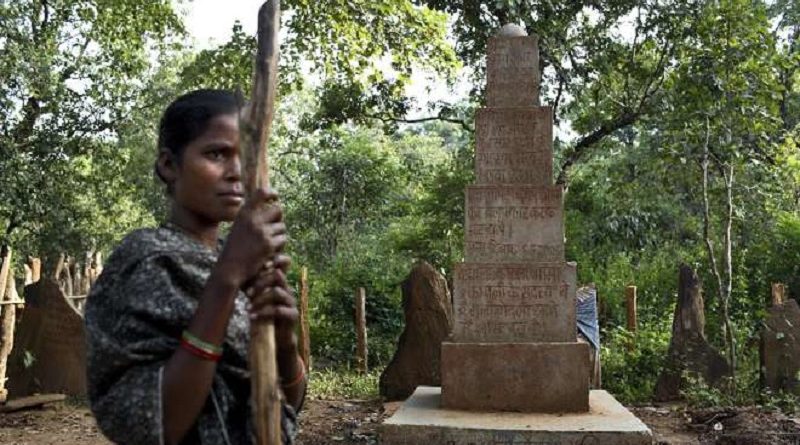Maoist Rebels, Rights Abuses, and India’s ‘Greatest Internal Threat’
Picture : A memorial to women allegedly raped and killed by security forces lies six hours’ walk into the jungle in the district of Bastar. It says ‘The martyrdom will not be in vain’ and ‘Long live the people’s guerilla army’.
With magnificent waterfalls, mysterious forest trails and an exotic tribal population, the forest-covered, mineral-rich region of Bastar, in central India’s Chhattisgarh state, is blessed with the kind of natural resources that might, under the right circumstances, make it a must-see destination for high-spending tourists. Yet this is no place for a holiday retreat.
Bloodshed and fear are the hallmarks of this region 1,500km south of the national capital New Delhi. It is known chiefly for being India’s most militarised region, where there is a member of the security forces for every 16 residents.
Those security forces are frequently criticised for running amok. Just last month India’s National Human Rights Commission (NHRC) highlighted an incident in which 16 tribal women were raped, saying it had been “deeply disturbed by the state of affairs in Chhattisgarh” over the past year.
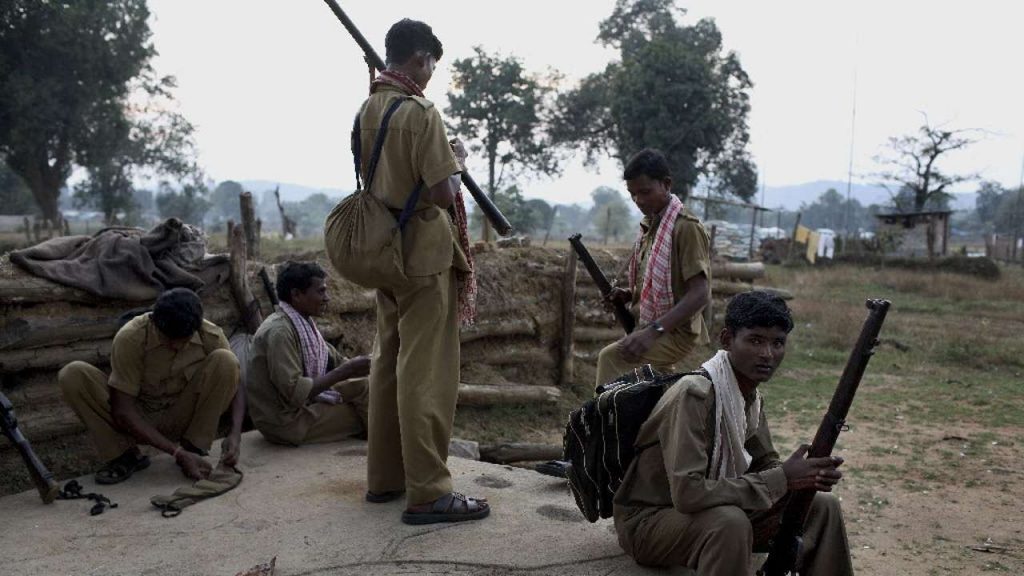
Special Police Officers in Salwa Judum camp, Bastar district
Within weeks, the government sent the top police official in the region – Inspector General of Bastar S.R.P. Kalluri – on indefinite leave in a tacit indictment of crimes perpetrated by security forces against tribal residents. Activists blame Kalluri for the harassment and intimidation of human rights defenders that took place under his watch. “[Security forces] derived impunity because of him,” said Sushil Sharma, the editor of local Hindi newspaper Bastar Bandhu.
Alongside Kashmir and Manipur in the northeast, Bastar is one of three regions where the Indian government is accused of blatant rights violations.
At the heart of its problems is the conflict between the government and a Maoist guerrilla group over Bastar’s ample natural resources. The state pushes aggressively for corporate involvement and mineral extraction while the Maoists oppose large-scale mining and heavy industrialisation. Manmohan Singh (pictured above), the former prime minster, once said the conflict in Bastar was India’s “greatest internal threat”.
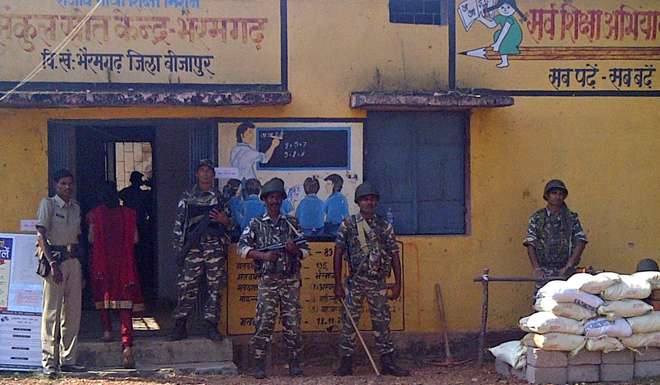
Indian security personnel at a polling station in the Bastar region of Chhattisgarh.
Chhattisgarh produces 20 per cent of India’s cement. It also has India’s second-highest reserves of coal, which is crucial for electricity generation, and is one of the nation’s largest producers of iron ore and tin. This makes it important to the government’s developmental agenda.
The Maoist rebels, who dress in uniforms similar to the army, say residents benefit little from the state’s development and that the chief beneficiaries reside in larger cities elsewhere.
As is often the case in such disputes, it is innocent, unarmed residents who have found themselves in the crossfire. The Maoists, who take refuge in the dense forests, depend on locals to feed them and provide shelter, frequently forcing them to do so at gunpoint. This makes the dozens of battalions of paramilitary forces stationed in Bastar, who are assisted by thousands of state police, regard the villagers as Maoist sympathisers. Consequently, the villagers are targeted often, and sometimes indiscriminately.
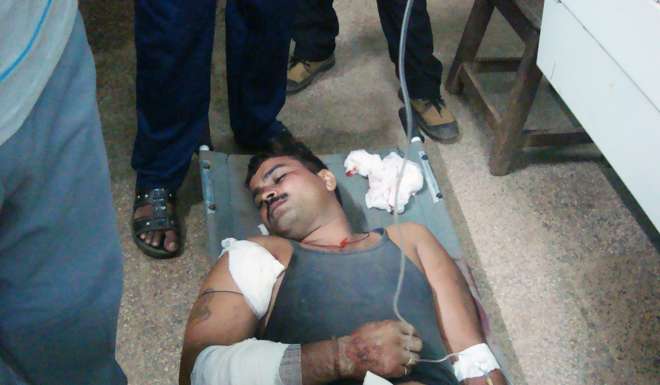
An injured member of the security forces lies on a stretcher at Jagdalpur hospital in Bastar following a clash with Maoist rebels.
In the violence that has raged for 30-odd years, the state has recently had the upper hand. During 2016, the police killed 133 people accused of being Maoists, more than a person every three days.
Villagers claim most of these deaths were extrajudicial killings. In November, security forces shot and killed a 13-year-old deaf boy. His parents petitioned the High Court of Chhattisgarh, which has ordered an exhumation of his body and a postmortem.
Likewise, 1,210 alleged Maoists surrendered in 2016 – though a state government committee found 97 per cent of these “surrenders” had been forced and illegal.
“Nothing is more farcical than surrenders,” said a villager in Sukma district, who supposedly did so himself in December 2016. He said he had been tilling his land when the police arrived and told him to sign the surrender papers in return for money or be beaten up and arrested.
He chose the first option. “Now I am counted as a former Maoist, with restrictions on travel, but I never had anything to do with the Maoists,” he said.
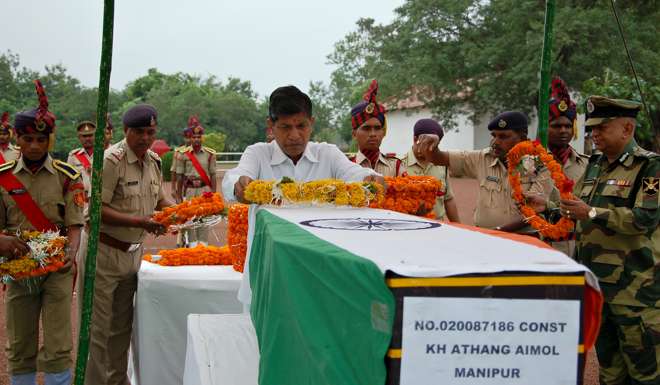
Home Minister of the central Indian state of Chhattisgarh, Nanki Ram Kanwar, lays a wreath on the coffin of a police officer killed in a clash with Maoist rebels in Bastar.
“The problem is, under the pretext of fighting the Maoists, the security forces have been given a free hand and they misuse it,” said Bela Bhatia, a Bastar based scholar and activist.
Meanwhile, over the past year, many of the independent voices capable of questioning the conduct of the security forces have been quelled.
Journalists have been arrested and at least two – including a BBC reporter – forced to flee Bastar. Two lawyers from the Jagdalpur Legal Aid group were also hounded from the region, while opposition party leaders Soni Sori and Manish Kunjam were threatened and physically assaulted.
This makes estimating the true levels of atrocities difficult.
Nevertheless, uncowed by such events local independent activists have persisted, touring remote forest villages to collect stories of offences against villagers and help them file complaints against the security forces. These were the complaints that became the basis for the NHRC’s report on the rapes and the ousting of the Inspector General.
The non-profit organisation People’s Union of Civil Liberties has called for the Indian government to “declare a state of internal armed conflict and allow strict independent monitoring under the Geneva Protocol of human rights violations by both parties to the conflict”.
The government has not recognised the demand as yet, but seems to be moving in that direction.
For now, the ousting of the top police official in the region has given activists reason for cheer, though they are aware the resources in the region are too precious for the government to let go.
“It is certainly a respite,” said Shalini Gera, lawyer of the Bastar-based Jagdalpur Legal Aid Group. “I’m not sure how long it will last though.”
Source : http://www.scmp.com/week-asia/politics/article/2069925/maoist-rebels-rights-abuses-and-indias-greatest-internal-threat

